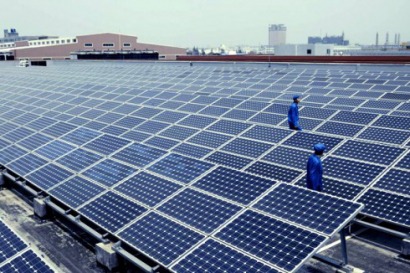
The efficiency rating was certified by the Newport Corporation's Technology and Applications Center (TAC) PV Lab and places First Solar ahead of its established research cell roadmap while validating CdTe's continuing competitive advantage over traditional crystalline silicon technology.
The record-setting research cell was constructed at the company's Perrysburg, Ohio manufacturing factory and Research & Development Centre using processes and materials suitable for commercial-scale manufacturing. The record has been documented in the U.S. Department of Energy's National Renewable Energy Laboratory (NREL) "Best Research Cell Efficiencies" reference chart and is the eighth substantial update to CdTe record efficiency since 2011.
“Our latest research cell efficiency record is a result of continued learning in the material science and device physics of CdTe solar cells” said Raffi Garabedian, First Solar's Chief Technology Officer. “Our work is not done in isolation, but is in part a result of the many fruitful collaborations we have with academia, national labs, and our industrial partners, most notably GE Global Research. The learning has enabled us to further optimise our fabrication processes and thereby boost the performance of practical devices further towards the theoretical limit.”
Mr Garabedian added that the company’s significant sustained investment in development of CdTe technology has enabled the company to meet or exceed its projections for improvements in research cells and modules, as well as commercialised technology.
In March 2014, the company presented a technology roadmap that anticipated a 22 percent research cell efficiency milestone in 2015.
In other news announced by the company, First Solar’s commercial modules have passed Atlas 25+ certification following a rigorous series of long-term combined-stress environmental exposure tests. The achievement demonstrates that the company’s focus on module durability has continued to yield results for commercially available products.
The Atlas 25+ certification stresses durability and degradation against accelerated environmental conditions experienced in long-term service. According to Azmat Siddiqi, Senior Vice President for Quality and Reliability, First Solar modules passed the Atlas 25+ stress tests for all parameters, including power output, insulation resistance and visual damage in the hot/arid, subtropical, temperate and "global composite" climate simulations.
Formal certification documentation will be issued by inspection, verification, testing and certification company SGS.
For additional information:

